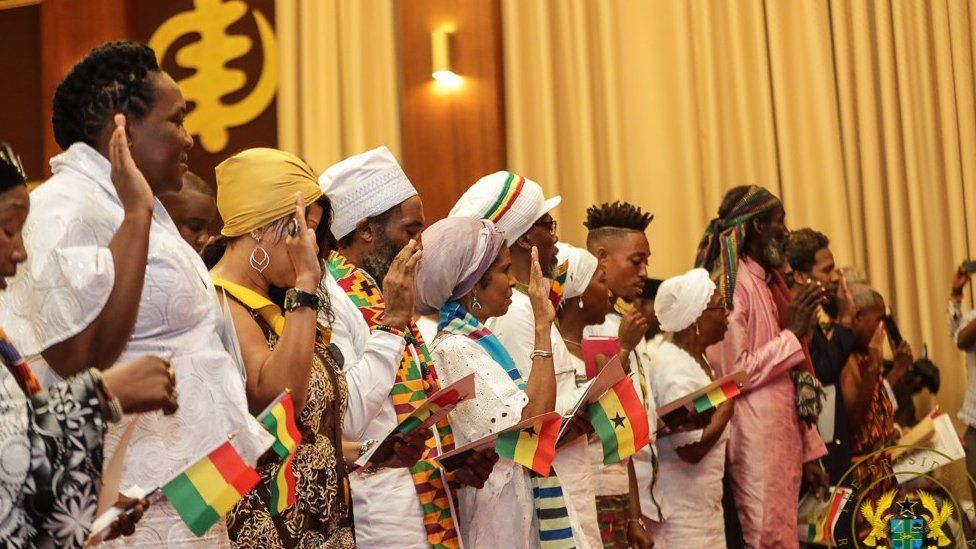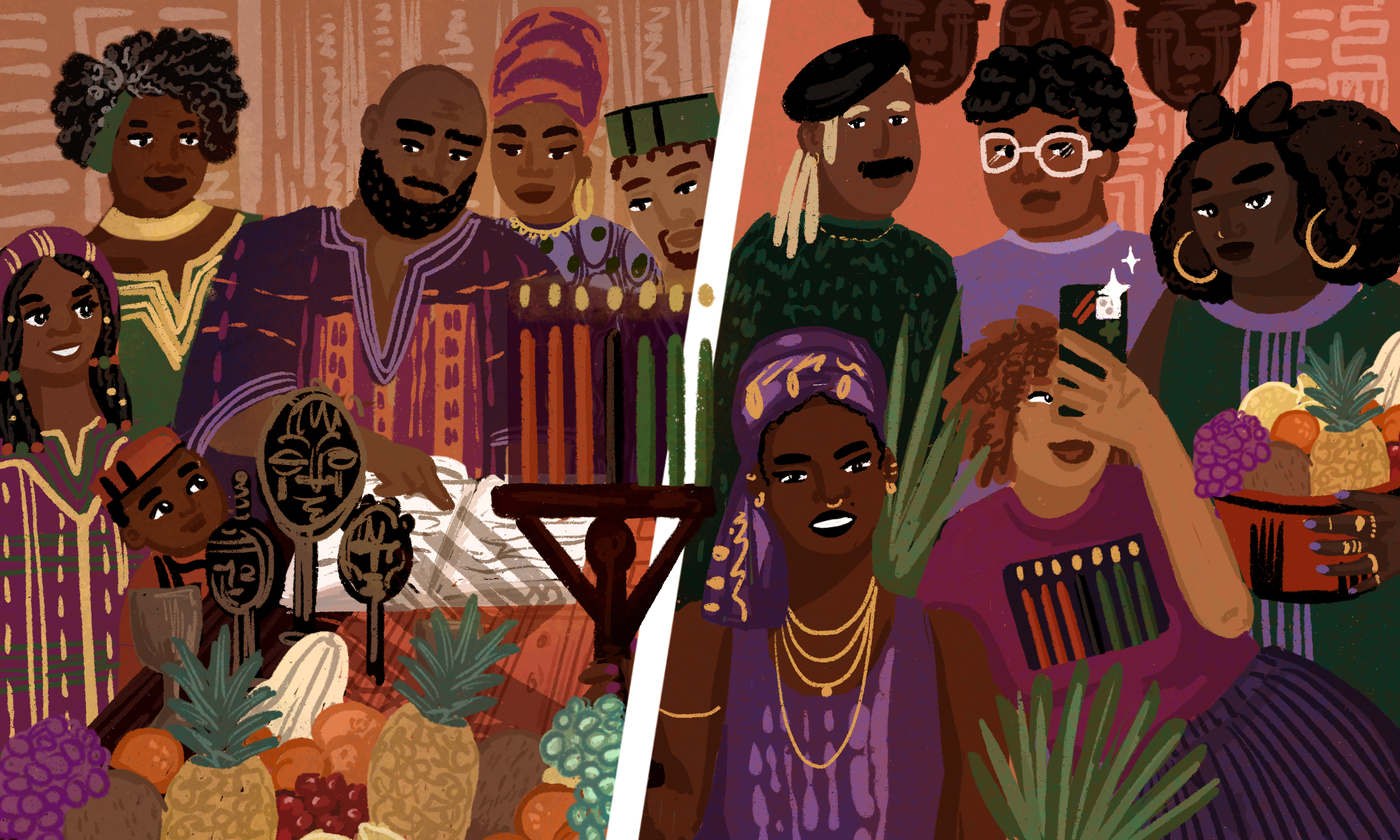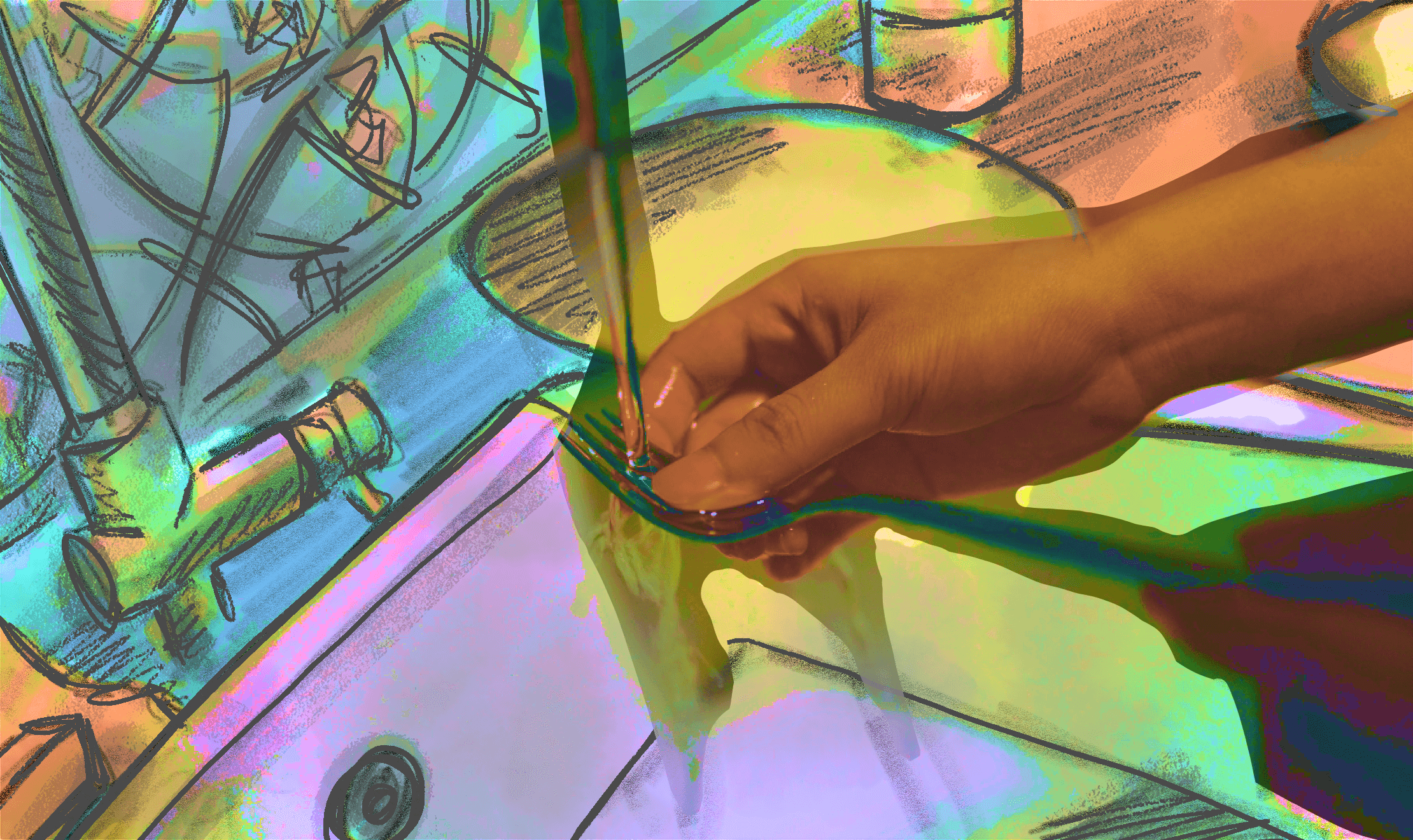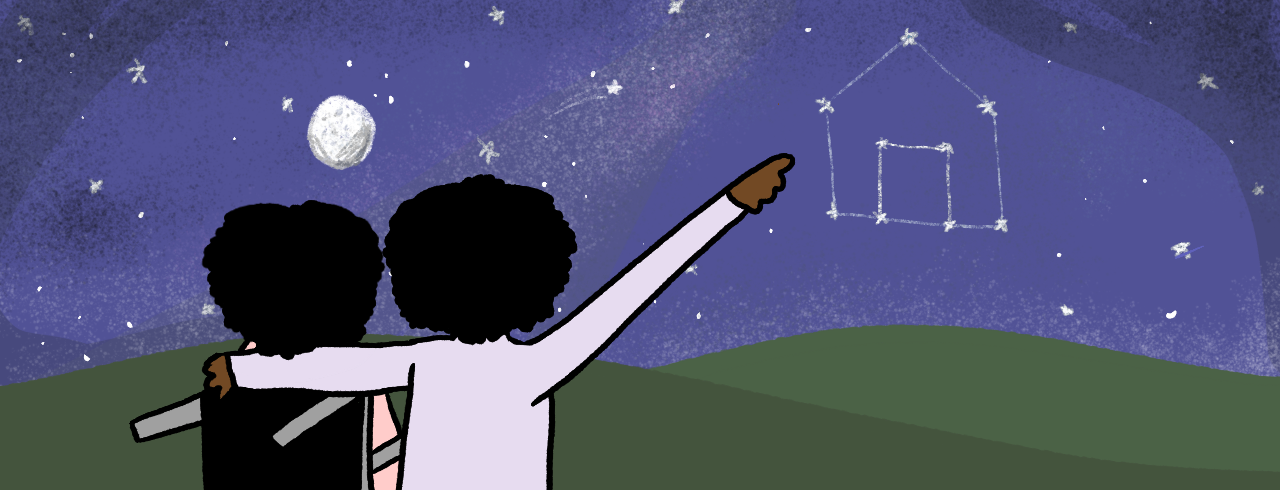
As Babylon burns, black people are searching for a home that doesn’t exist
Tobi Kyeremateng
16 Dec 2019
Ghana Year of the Return / Photography via Ghana Presidency
There are black communities who are considering leaving the UK now that the Tories have won the election, and I get it. In the last decade, I have seen a wave of blossoming pride and cultural rooting from first-generation black British communities across the UK, in tandem with the Caribbean and the African continent calling on black diasporic communities to “come home”. The Caribbean island of St Kitts hosted its first-ever diaspora conference, while Ghana dubbed 2019 as “The Year Of Return”, paying homage to the first enslaved people that arrived in the United States 400 years ago. Young black British communities are reaching eagerly towards reconnecting with our mother countries and islands to find a way back to the places that make up our heritage.
Within a week of the general election win for the racist Conservative Party, which meant Boris Johnson kept his role as prime minister, people have begun to share their experiences on Twitter of race and religion-related racist attacks. This follows the Brexit referendum in 2016 which saw hate crimes motivated by race or religion, and the intersection of the two, rise by at least 40% shortly after the referendum was announced.
Post-Brexit, I started to think about the possibilities of a new life in Ghana or Nigeria, where my parents are from and some of the complexities around the move “back home”. The feeling of wanting to run towards something that feels either familiar or utopian – something that feels better than this – grows to become a longing that weighs heavier on the shoulders and creeps further to the forefront of thought. The optics of being surrounded by people that look like us, somewhere where the sea kisses our feet and the sun hugs our backs, gleams like some shiny, perfect thing. Dual citizenship paired with having living family based in these “homes from homes” makes sense in a choice between a rock and a hard place.
“The feeling of wanting to run towards something that feels either familiar or utopian – something that feels better than this –grows to become a longing”
And on the other hand, when our various “homes” have been punctured politically, economically and socially by the debris of colonisation, I wonder how and where do we run from the many faces of “home” when its bricks and mortar are ultimately made up of the same white supremacist ingredients? The ideology of a space that allows all-black communities to live radically free simply by holding a black majority congregation feels like an ideology built on the last legs of genuine hope and seen through Western diasporic rose-tinted glasses. As such, the search and advocation of this utopia without deeper analysis into the compositions of our home countries today feels myopic.
A Pan-Africanist way of thinking isn’t new here, with activists, scholars and communities having paved the groundwork of liberating African communities across the diaspora and reimagining black identities in relation to home and land since the 19th century. I don’t believe the fight to reclaim the “home” black communities have set up in Britain is one of blind patriotism, especially since black West Indian communities built up Britain after the Second World War.
Nor do I consider the decision to “just go back home” to be one of inherent neo-colonialism. But I question what going “back home” means to the minoritised communities within black communities: to queer and trans black people, or to disabled black people, and on what basis “safety” in this respect is defined, who that is defined for and what it means to reintegrate into these societies while actively thinking about the remnants colonialism left behind. There are infrastructures with pigmentocracy, capitalism and queerphobia running through their bones.
“I ask what going ‘back home’ means to the minoritised communities within black communities: to queer and trans black people, or to disabled black people, and on what basis ‘safety’ in this respect is defined”
The poem ‘Conversations About Home (at the Deportation Centre)’ by Warsan Shire opens with “no one leaves home unless/home is the mouth of a shark”, and I often think about how many sharks black communities across the diaspora have had to run from and run into. How many of us have drowned in the symptoms of colonial rule when white supremacy is the indefinite ocean lapping up into the sharp teeth of British colonisation? How many generations before ours have been running, how many generations after will continue to run and how long we will all be running until there is nowhere left?
I think about how “home” is a shapeshifter with many faces; like the ones we see in our dreams that feel neighbourly, that feel intimate and close as if we have known them our whole lives, only to wake to unprecedented chaos and the face of a swelling dystopian reality that gaslights the love we have for our “homes” into oblivion. I think about how the concept of “home” mutates into something that looks so unfamiliar and ugly, and something that looks back at us with the same unrecognisable expression as an inevitable consequence of Britain’s historical collective amnesia. When the “home” you have grown to know best feels like a raging inferno, clipping at the heels of your feet, where do you go when the rest of the world is on fire too?
I’d be lying if I said I wasn’t scared for the uncertainty of my community’s futures here in Britain. This is a violent fear, and it is a kind of violence that disguises itself in the smiles of our oppressors and the shadows of our bodies wherever we go. I don’t know what the solution is, but I know “home” shouldn’t feel like the mouth of a shark, or like it is chasing us, or like it wants to set us alight. The return shouldn’t be one of fleeing, but one of a consistent mass diasporic movement and critical learning that will eventually lead us out of Babylon and on the road to freedom.









